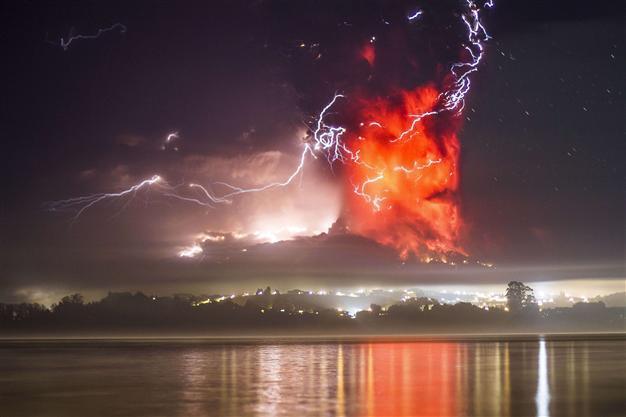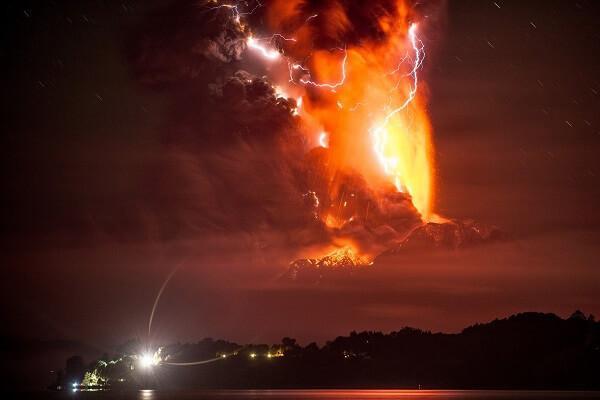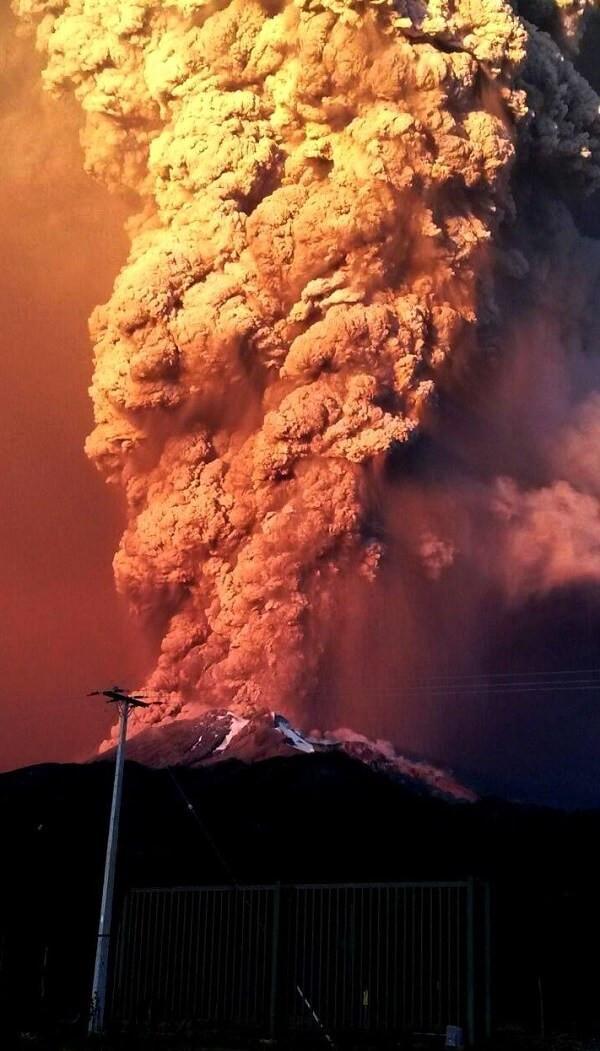Chile volcano erupts for first time in decades, then again
SANTIAGO - Agence France-Presse

AFP photos
A volcano in Chile that had been inactive for 50-plus years suddenly erupted twice in the space of hours with tremendous force, blasting huge clouds of ash into the air and forcing the evacuation of some 5,000 people.There were no immediate reports of injuries after the eruptions from the Calbuco volcano in southern Chile Wednesday evening and then again seven hours later, early April 23.
A state of emergency was declared after the first eruption, and air traffic was disrupted.
Chilean TV aired spectacular footage of ash and flames belching from the mouth of the volcano.
The first eruption spewed a giant mushroom of ash 10 kilometers (six miles) into the sky. Ash was expected to reach neighboring Argentina.
Calbuco had been dormant for 54 years, officials said. Earlier reports had put the quiet span at 43 years.
Officials ordered an evacuation for a 20-kilometer radius around the volcano and the interior ministry rushed in the army to temporarily take control of the province of Llanquihue and the town of Puerto Octay.
The National Geology and Mining Service said the volcano might start oozing lava, raising the possibility of mountain-top snow and ice melting, causing floods and raising water levels in rivers.
It said a third eruption was likely over the next few hours.
President Michelle Bachelet said she would travel to the affected area Thursday along with several ministers.
"The ash might damage crops, animal feed, bridges, roads, people’s work routines, tourism and especially their health," President Bachelet said.
The first eruption lasted nearly 90 minutes, vulcanologist Gabriel Orozco of the geology service said.
On a 0-8 scale measuring volcano eruption strength, the first one came in at four or five, Interior Minister Rodrigo Penailillo said.
The second one was just about as powerful, the ministry said.
It said there were no immediate reports of people hurt or missing.
Until minutes right before the blast, volcano eruption monitoring systems had picked up nothing. In fact, volcano watchers in Chile had been watching another one, Villarica also in the south, for a possible eruption.

People 'very, very frightened'
Emergency measures were also in place in Argentina, where the picturesque city of Bariloche -- about 100 kilometers from the volcano -- said it was anticipating the arrival of ash clouds within hours and warned people to stay at home.
Puerto Montt, over the border from Bariloche and the largest Chilean city in the area, was already blanketed in a cloud of ash.
"People are very, very frightened," said Gervoy Paredes, mayor of Puerto Montt.
"The situation is pretty complicated," he added, saying reports indicated the Blanco river was flooding because of ice melt triggered by the eruption.
Airlines canceled flights as the towering ash cloud rose from Calbuco’s snowy peak and schools also suspended classes in the region.
Television footage showed large traffic jams and long lines at gas stations in Puerto Montt, where a red alert was declared, along with nearby Puerto Varas.
"I would like to call on the population to remain calm and stay informed," Penailillo said.
Police called on residents to keep roads as clear as possible to aid the evacuation.
It was a "rather explosive eruption," said Gabriel Orozco, a volcanologist at the National Geology and Mining Service.
He said the 10-kilometer-high ash cloud risked collapsing, and warned: "River beds are very dangerous at the moment" because of the risk of ice and snow melting and causing floods.
The 2,000-meter (6,500-foot) volcano is located in the Los Lagos region, some 1,400 kilometers south of the capital Santiago.
It is the second volcano in southern Chile to have a substantial eruption since March 3, when the Villarrica volcano emitted a brief but fiery burst of ash and lava.
That eruption caused authorities to evacuate more than 3,500 people.
No lava was seen in the latest eruption, which began around 6:00 pm (2100 GMT).
But the ash cloud, which could be seen from 20 kilometers away, loomed over the crater, turning hues of pink and yellow as the sun set over the area.
Chile has about 90 active volcanoes, of which Calbuco is considered one of the most dangerous.

















